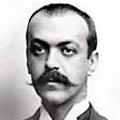1. Prefazione
前言
Preface
1. Vorwort
1. Πρόλογος
1. Preface
1. Prefacio
1. Préface
Voorwoord
1. Prefácio
1. Förord
一、前言
Io sono il dottore di cui in questa novella si parla talvolta con parole poco lusinghiere.
|||医生|||||小说|||有时||||恭维的
ich||der|Doktor|von||in|dieser|||gesprochen wird|manchmal||Worten|wenig|schmeichelhafte
I|am|the|doctor||whom||this|novel||talk|sometimes||||flattering
|||||||||||a volte||||lusinghiere
I am the doctor of whom in this novel one speaks sometimes with unflattering words.
Je suis le médecin dont on parle parfois dans cette novella avec des mots peu flatteurs.
Jeg er legen som det noen ganger blir snakket om i denne novellen med uflatterende ord.
Sou o médico de quem às vezes se fala neste conto com palavras pouco lisonjeiras.
Chi di psico-analisi s’intende, sa dove piazzare l’antipatia che il paziente mi dedica.
||心理分析|分析|懂||||厌恶|||病人||奉献
|von|||sich versteht|||platzieren||die|||mir|
||psycho|analysis|understands|he knows|where|place|dislike|||patient|to me|dedicates
Those of psychoanalysis are understood to know where to place the antipathy the patient dedicates to me.
Ceux qui connaissent la psychanalyse savent où placer l'antipathie que le patient me voue.
Di psico-analisi non parlerò perché qui entro se ne parla già a sufficienza.
||||我会说|||||||||足够
about||||I will speak|||I enter|if|||||sufficiently
Ich werde nicht über Psychoanalyse sprechen, weil ich hier schon genug darüber spreche.
I will not speak of psychoanalysis because it is already sufficiently discussed here.
Je ne parlerai pas de la psychanalyse, car on en a déjà suffisamment parlé ici.
Debbo scusarmi di aver indotto il mio paziente a scrivere la sua autobiografia; gli studiosi di psico-analisi arriccerranno il naso a tanta novità.
我必须|我自己辩解|||诱导|||||||||||||||||||
||||induzieren||||||||||||Psycho||werden ihre Nase|||||
must|apologize||having|induced|||patient|||||autobiography||scholars||psycho|analysis|will enrich||nose|||novelty
Ich muss mich dafür entschuldigen, dass ich meinen Patienten veranlasst habe, seine Autobiographie zu schreiben; psychoanalytische Gelehrte werden bei so vielen Neuigkeiten die Nase rümpfen.
I must apologize for having led my patient to write his autobiography; psychoanalysis scholars will raise their noses to such a novelty.
Je dois m'excuser d'avoir incité mon patient à écrire son autobiographie ; les spécialistes de la psychanalyse fronceront le nez devant une telle nouveauté.
Ma egli era vecchio ed io sperai che in tale rievocazione il suo passato si rinverdisse, che l’autobiografia fosse un buon preludio alla psico-analisi.
||||||hoffte||||Wiedererinnerung|||||erneuern würde|||||||||
but|he|||||hoped|||such|reminiscence||his|past|it|rejuvenate||the autobiography||||prelude|||
Aber er war alt und ich hoffte, dass in dieser Nachstellung seine Vergangenheit wiederbelebt würde, dass Autobiographie ein guter Auftakt zur Psychoanalyse sein würde.
But he was old and I hoped that in this re-enactment his past revived, that autobiography was a good prelude to psychoanalysis.
Mais il était vieux et j'espérais qu'une telle reconstitution lui ferait revivre son passé, que l'autobiographie serait un bon prélude à la psychanalyse.
Oggi ancora la mia idea mi pare buona perché mi ha dato dei risultati insperati, che sarebbero stati maggiori se il malato sul piú bello non si fosse sottratto alla cura truffandomi del frutto della mia lunga paziente analisi di queste memorie.
||||||||||||||unerwartete|||||wenn|||||||||sich entzogen|||trügendem||||||||||
|||||to me|it seems|||||given||results|unexpected||would have|they would have been|greater||the|sick||most|beautiful||||withdrawn||care|deceiving||fruit||my||||||memories
||||||||||||||insperati|||||||||||||||||truffandomi||||||||||
Heute scheint mir meine Idee immer noch gut zu sein, weil sie mir unerwartete Ergebnisse gebracht hat, die größer gewesen wären, wenn der schönste Patient der Behandlung nicht entkommen wäre, indem er mich um die Früchte meiner langen Patientenanalyse dieser Erinnerungen betrogen hätte.
Today my idea seems to me to be good because it gave me unexpected results, which would have been greater if the patient on the most beautiful had not escaped the cure by cheating on the fruit of my long patient analysis of these memories.
Aujourd'hui, mon idée me semble encore bonne car elle m'a donné des résultats inespérés, qui auraient été plus importants si la personne malade n'avait pas, au plus beau moment, esquivé le remède en me trompant du fruit de ma longue et patiente analyse de ces souvenirs.
Le pubblico per vendetta e spero gli dispiaccia.
to her|||revenge||I hope|to him|sorry
|||||||dispiaccia
Ich veröffentliche sie aus Rache und hoffe, dass es ihnen etwas ausmacht.
The public for revenge and I hope you displease him.
Je les publie par vengeance et j'espère qu'ils m'en voudront.
Eu os publico por vingança e espero que eles se importem.
Sappia però ch’io sono pronto di dividere con lui i lauti onorarii che ricaverò da questa pubblicazione a patto egli riprenda la cura.
|||||||||||||ich erzielen werde|||||||übernimmt||
he knows||that I||||share|with|him||generous|generous fees||receive|from||publication|in|condition|he|resume||
|||||||||||||ricaverò|||||||||
Aber wissen Sie, dass ich bereit bin, ihm die verschwenderischen Gebühren mitzuteilen, die ich aus dieser Veröffentlichung erhalten werde, solange er die Pflege wieder aufnimmt.
But know that I am ready to share with him the honors honorarii that I get from this publication as long as he resumes the cure.
Cependant, il doit savoir que je suis prêt à partager avec lui les généreux honoraires que je tirerai de cette publication à condition qu'il reprenne la cure.
Sembrava tanto curioso di se stesso!
he seemed|||||himself
Er schien so neugierig auf sich zu sein!
He seemed so curious about himself!
Il semblait si curieux de lui-même !
Ele parecia tão curioso sobre si mesmo!
Se sapesse quante sorprese potrebbero risultargli dal commento delle tante verità e bugie ch’egli ha qui accumulate!...
if|he knew||surprises|they could|result||comment|of||||lies|that he|||accumulate
Wenn er wüsste, wie viele Überraschungen sich aus seinem Kommentar zu den vielen Wahrheiten und Lügen ergeben könnten, die er hier angesammelt hat!
If he knew how many surprises they might have from the commentary on the many truths and lies he has accumulated here! ...
S'il savait combien de surprises pourraient résulter des commentaires sur les nombreuses vérités et mensonges qu'il a accumulés ici !
Dottor S.
|Dr.
Doctor S.

